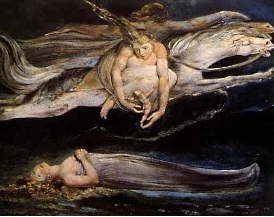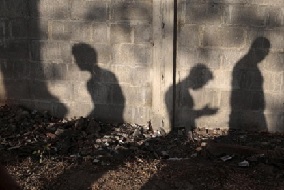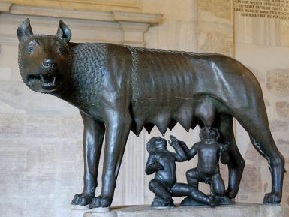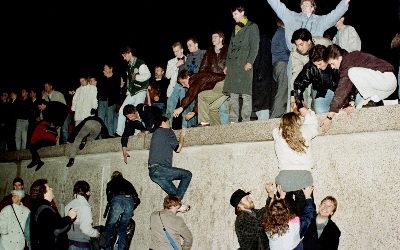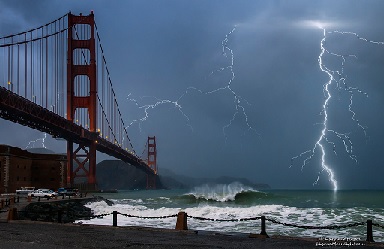Editor's Page
Death be not proud (or) Life After Eighty by Frank Thomas Smith
When
you live to be over eighty years of age, it's no
longer possible to avoid thinking seriously about inevitably
approaching death. We all know, theoretically, that we will die at
some point in time. I say “theoretically” because we
don't really believe it until
at least the average milestone in life has been reached –
around 42 years, unless, of course, serious illness or a life
threatening accident has brought the milestone closer. But at “over 80”
the message becomes seriously clear. You're lucky if you still have
some of your original teeth left; you certainly use eyeglasses or
contact lenses, your gait is slow, your reactions dim. It was said,
correctly, that Derek Jeter was too old at 39 to keep playing
shortstop for the New York Yankees. And he agreed...
continue reading
Cuando uno llega
a vivir más de ochenta años, ya no puede evitar pensar seriamente en la muerte
que se acerca inexorable. Todos sabemos, en teoría, que hemos de morir en algún
momento. Digo “en teoría” porque no lo creemos realmente hasta haber
alcanzado por lo menos el hito promedio de la vida –alrededor de los 42 años,
a menos, por supuesto, que alguna grave enfermedad o accidente lo haya
adelantado. Pero con “más de
ochenta”, el mensaje se vuelve claro en serio. Uno tiene suerte si aún conserva
algún diente original; con toda seguridad, usa anteojos o lentes de contacto,
su paso es lento, sus reacciones, embotadas...
Continuar
Features
The
Dance of Shadows in America - Reflections
on the Presidential Election of 2016 by Christopher Schaefer
The
election is over. Many of us are confused, dismayed and live with the
questions of what actually happened? How can we make sense of it and
what can we do now?
We
live in strange times when both presidential candidates had
extraordinarily high negative ratings, each being loathed by close to
half the population. President Trump is described by many as having
some of the ugliest character traits one can imagine. ”A
hypersensitivity to criticism, a streak of viciousness, an inability
to confess error and a willful ignorance about the issues.”
One can easily add other unsavory qualities, that he is a proud and
unrepentant liar, a narcissist, an acknowledged tax evader, a racist,
misogynist, sexual predator and woeful bigot. Clearly singularly
unfit for office and yet now President of the United States...
Continue reading
Rome and the Romans - Ancient and Modern
by Gaither Stewart
Long before the Nibelungen mythology spread
in Teutonic lands, legends and semi-legends abounded in the ancient and
isolated lands south of the Alps, legends that say a lot about how these
peninsular Italic peoples today think and dream. Etymologists explain that the
Latin word, legend, deriving from ancient Rome’s spoken Latin language,
means ‘things to be read’. Those legends—those things to be read—chronicle
human events that lie within the realm of possibility and relate miracles that could
happen and therefore are at least partially believed by all. Handed down from
generation to generation, legends evolve and transform in the telling and the
passing of time. A millennium before the Nibelungen family, Romulus and Remus
appeared on the hills that were to become the center of the star-shaped city of
Rome...
Continue reading
History After the End of History
by Andrew J. Bacevich
The fall of the Berlin Wall in October 1989 abruptly
ended one historical era and inaugurated another. So, too, did the
outcome of last year’s U.S. presidential election. What are we
to make of the interval between those two watershed moments?
Answering that question is essential to understanding how Donald
Trump became president and where his ascendency leaves us. Hardly had this period commenced
before observers fell into the habit of referring to it as the
“post-Cold War” era. Now that it’s over, a more
descriptive name might be in order...
Continue reading
Fiction
A Good Rain Knows When to Fall by JP Miller
The
bus ride from downtown San Francisco across the Bay Bridge to Oakland
was long and choked with diesel fumes. The sudden stops and starts
never bothered me much. I must have nodded out at some point. I
dreamed that I was still in Karbala, covered with broken off reeds,
hiding behind a crumbling wall made of goatshit, straw and dried mud.
I was firing my weapon at Hajis, who raised their heads and their AKs
like carnival targets at about 200 meters all around us. Klinger was
there, spraying them down with the SAW. DC was fumbling, reloading
his M-4. Robby had a blank thousand yard stare on his face as he
slipped on all the brass piling up around us. Even the XO, Major
Mahorn or Horny as we called him, was discharging his 9mm with his
right hand over the flimsy wall... Continue reading
Poor Samaritan by Dorothy Day
Every morning at ten o'clock, as I stood at the kitchen
sink and finished the breakfast dishes, I could hear him pecking up
the street on his wooden leg. I lived in the basement of a
remodelled corner house in the East Fifties. From the front windows
on First Avenue I could almost see the East River—anyway, I
could hear the boat whistles. The apartment ran the length of the
house, so that the kitchen at the back and the small garden
adjoining it were adjacent to the side street. I called that tiny
patch of ground a garden, and so did the real-estate man who leased
me the place, but it held little privacy. It was separated from the
street only by a high railing, and passersby could almost tell what
we were drinking on those afternoons when I entertained my friends
out of doors...
Continue reading
Miryam by Luise Rinser
You
call me Mary Magdalene. You should call me by my real name:
Miryam. In Aramaic, my mother tongue, Miryam means: the beautiful and
also the bitter one. Both apply to me: I was beautiful, and much
bitterness was in me from youth on, until I met Yeshua, and new
bitterness was allotted me when he was killed. Magdala is the name of
my home city. A town in Galilee, a mass of chalk-white stone blocks,
so white that they dazzle in the sun and sparkle in the moonlight. A
commercial town, a town of strong smells, stench and fragrance
combined: the smell of fish from the Sea of Kineret and salt, the
fragrance of goods which my father bought and sold: sandalwood,
myrrh, balsam, perfumed olive oil, accompanied by the stench of camel
dung and donkey urine and the sweat smell of men, the merchants and
caravan drivers who came out of the desert. When the north wind blew,
it wafted the air in, then for a while the town smelled of desert,
and after the snow of the distant Hernon. My hometown. It’s old
name came from the fish: Migdal Nunaya, fishburg. The Greeks who
lived in the eastern neighboring province,
in Decapolis, called it Tarischaia, and this name also has a
connection to the fish...
Continue reading
Book Review
Judas [The Gospel of Judas] by Amos Oz
Here is a story from the winter days
of the end of 1959 and the beginning of 1960. It is a story of error
and desire, of unrequited love, and of a religious question that
remains unresolved. Some of the buildings still bore the marks of the
war that had divided the city a decade earlier. In the background you
could hear the distant strains of an a harmonica from behind closed
shutters.
The city is
Jerusalem, divided into Israeli and Palestinian sectors...
Continue reading
Anthroposophy
Reincarnation and Karma - Lecture Five of five by Rudolf Steiner
For many
years past we have been studying anthroposophical truths, details
of anthroposophical knowledge, trying to approach them from
different sides and to assimilate them. In the course of the
lectures now being given, and those yet to come, it will be well
to ask ourselves what Anthroposophy should and can give to the
people of our time. We know a good deal of the content of
Anthroposophy and we can therefore approach the question on a
certain basis of understanding. We
must above all remember that anthroposophical life, the
anthroposophical movement itself, must be clearly distinguished —
in our minds at any rate — from any kind of special
organisation, from anything to which the name “Society”
might be given. The whole character of modern life will of course
make it more and more necessary for those who want to cultivate
Anthroposophy to unite in a organizational sense; but this is
made necessary more by the character of life outside than by the
content or attitude of Anthroposophy itself...
Continue reading
"Apologia" concerning the publication of the the First Class Lessons: English /
Español
Esoteric Lessons for the First Class - Lesson Two in
Prague by Rudolf Steiner
The day
before yesterday we considered the first part of what can be called the
encounter with the Guardian of the Threshold. I said about this encounter that
it must be taken with the utmost earnestness. For it should be clear that as
long as we are unable to develop the feelings related to what has been
disclosed, we will not be able to attain true knowledge. We may think that a
certain knowledge about the transition to the spiritual world is attainable
without these shattering impressions of self-knowledge. But what we can attain
without such impressions is not real knowledge. Everything accessible to us
through the senses, as well as what we can achieve by means of normal thinking,
can at most supply knowledge of what is outside the human being, but not about
the human being as such. For the human being is of a super-sensible nature in
his whole being. And what we observe by means of the senses is merely the
exterior image of the human being...Continue reading
Karmic Relations, Volume IV, Lecture 5 by Rudolf Steiner
 Chartres-interior Chartres-interior |
Having
spoken so often about the School of Chartres and its great
significance for the inner spiritual life of the West, I have
received a welcome gift during the last few days: a gift of
pictures, some of which have been put up here for you to see.
Others will be added next Tuesday. In these pictures you will see
what wonderful architectural works and works of sculpture in the
mediaeval sense, arose at the place where flourished that
spiritual life of which I have now spoken so often. The
personalities who were gathered in the School of Chartres still
had the impulse, even in the 12th century, to enter as teachers or
students into the living spiritual life that had arisen in the
turning-point of time — I mean in the epoch of European
evolution when humanity, inasmuch as they were seekers after
knowledge, still sought it in the living weaving and working of
the nature-beings, and not in the conception of empty and abstract
natural laws...
Continue reading
Poetry
There's
a Shadow 'cross the Nation by Tarjei Straume
There's
a shadow 'cross the nation
that's enveloped in a frown.
They've
alerted every station
and there's lots of fear in town.
Giant
rats are in the attic
and the termites eat the wood.
The
status quo is quite dramatic
but it isn't understood.
There
are handguns in the closets
and grenades in all the
cars
changing hands for cash deposits
in the alleys and the
bars...
Continue reading.
Where or when by Lorenz Hart and Richard Rogers
It seems we stood and talked like this before
We looked at each
other in the same way then
But I can't remember where or when
The clothes you're wearing are the clothes you wore
The smile
you are smiling you were smiling then
But I can't remember where
or when
Some things that happened for the first time
Seem to be
happening again...
Continue reading (and hearing).
You can find us under the
Southern Cross in the Traslasierra Valley, Province of Córdoba, Argentina. Visitors always welcome. Just follow the sign that reads: La Cruz del Sur.
Frank Thomas Smith, Editor
Contact
Authors'
Guidelines
so we can advise you when the next issue is ready. Many people are switching to Gmail. If you do, please advise us so we can change your subscription address.
For back issues, use the issue number.
For example: http://southerncrossreview.org/79/index79.html will deliver SCR number 79. For authors or titles, enter names or keywords in the Google search box below.
|


